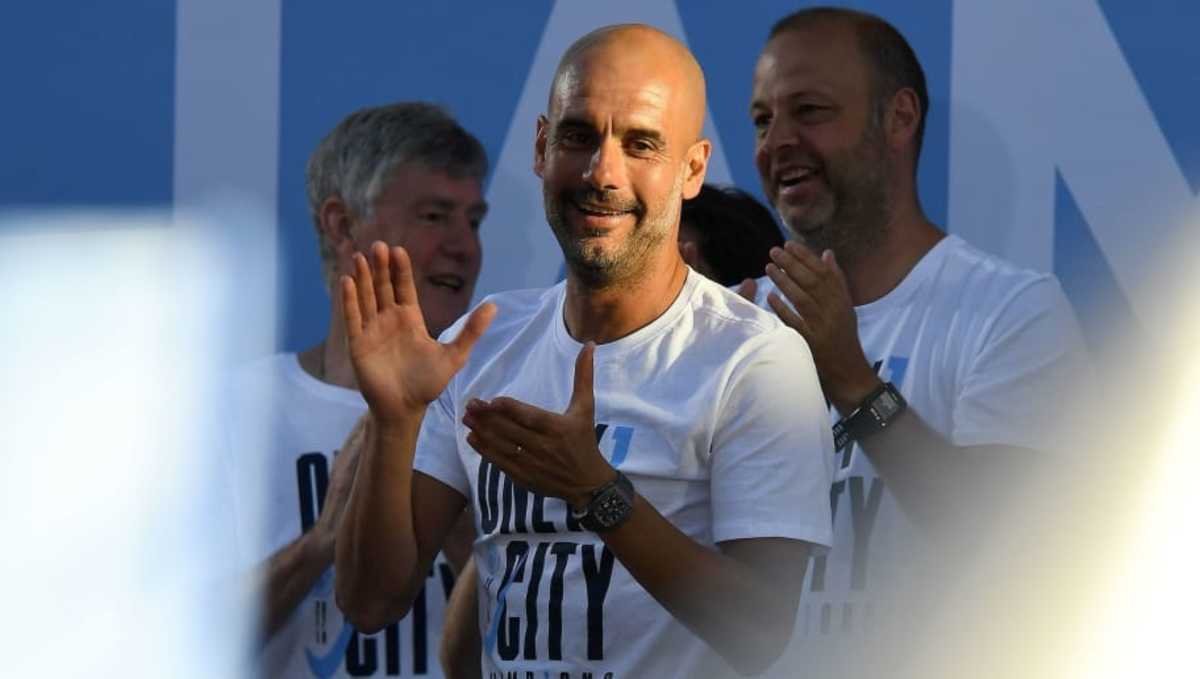Why the Latest Managerial Revolution Proves That the Premier League Is the Strongest in the World

It is becoming something of a cliché to remark that the level of competition in the Premier League gets stronger every year.
To boldly proclaim the English top flight as the greatest league in the world, beyond the realms of the Barcelona and Real Madrid-tilted top heaviness of La Liga and the tactically exhaustive conservatism of Italian football, is no longer as brave as it is formulaic.
The competitive nature of the Premier League runs deeper every year, from top to bottom of the table. The quality and fight in every team makes the English game notoriously exciting, entertaining and unpredictable, beyond anything seen elsewhere in modern European football.
The increase in high profile managers taking the top jobs of England's biggest clubs in recent years is perhaps the clearest evidence of the strength and appeal of the Premier League at present.
The summer of 2016 was a momentous point in these terms. Pep Guardiola’s move to Manchester City following the expiry of his contract at Bayern Munich set the benchmark.
His move to Manchester City marked the beginning of a sense that England, not Barcelona or elsewhere in the land of European giants, had become the place to be a top manager.
That same summer, Jose Mourinho took charge at Manchester United, following the underwhelming tenure of Louis van Gaal at Old Trafford and the Portuguese’s own failure to truly recapture past glories during a second spell with Chelsea.
He was replaced at Stamford Bridge by the highly animated and energetic serial winner, Antonio Conte, fresh from coaching Italy at Euro 2016.
On Merseyside, the ‘heavy metal football’ specialist Jurgen Klopp rocked up at Anfield a year earlier, having captured the imagination of all around Europe with his unique, high energy brand of football at Borussia Dortmund. It was a monumental period of managerial movement in England.
With Arsene Wenger’s tenure at Arsenal still going strong and Mauricio Pochettino’s Tottenham revolution in full swing, this was a period in which England seemed to be claiming a conglomerate of European football’s elite managerial talent.
This summer is already beginning to take on a similar sense of revolution within the English top flight. With Guardiola, Mourinho, Conte, Klopp and Pochettino all still in place and at the top of the tree, it is those below them who are now looking to follow suit.
Wenger’s 22-year reign as Arsenal’s iconic leader has now come to an end. The appointment of Unai Emery as the new head coach in the newly re-modernised management structure at the Emirates looks set to breathe fresh impetus and resurgence into the Gunners next term.
Burnley stormed the Premier League with an unforeseen seventh place finish last season which defied all probabilities of success for a side with such limited resources. Manager Sean Dyche has been widely credited with masterminding the great overachievement and was regarded by many as manager of the season. Dyche looks set to stay and go again at Turf Moor next term.
Newcastle’s appointment of Rafa Benitez as manager in 2016, following his sacking from the top post at Real Madrid, was seen as a huge coup for the Magpies. Their retention of the Spaniard’s services to this point is equally great for the club, particularly having finished tenth under his guidance following promotion back to the top flight last season.
Two sides who endured disappointing seasons last term, considering the investment of considerable funds and the subsequent levels of high expectation for both, were Everton and West Ham.
Having lost patience with the faltering methods of Ronald Koeman, the Toffees brought Sam Allardyce on board to steady the ship last term. West Ham endured a similarly troubled start under Slaven Bilic, and called upon the experience of David Moyes to rebuild and restructure the side to plug the gaps in the Hammers’ deficiencies.
Not satisfied with the steady progress made by each side, both Everton and West Ham have once again ditched their managers in search of more inspired appointments to breed greater quality in their teams.
West Ham moved swiftly following Moyes’ exit to secure the services of the veteran Manuel Pellegrini. The former Premier League winner is expected to instil a new direction, higher quality and greater inspiration in an underperforming Hammers squad next season.
Everton, meanwhile, are seemingly on the verge of appointing long-term target Marco Silva as their new boss. The Portuguese manager was the Toffees’ preferred candidate to succeed Ronald Koeman last season but could not be snared away from Watford at the time.
Now available following subsequent poor performance and resulting dismissal at Vicarage Road, Silva is set to bring the committed and stylish approach to Goodison Park which had made him such an attractive option all along, and is expected to deliver the kind of ambition and extra quality at Everton which Sam Allardyce could not.
With this new revolution of managerial movement among the Premier League’s ‘best of the rest’, it appears that the current formation of a seemingly impenetrable hierarchy of the top six clubs may not remain as set in stone as it seems at present.
The quality which these managers will instil in their new sides, or continue to build upon in the cases of Dyche and Benitez, will only further the depth of quality which the Premier League continues to breed.
The fact that such supposedly ‘lower’ clubs as Everton, Burnley, Newcastle and West Ham, beneath the more famed top six of the division, can continue to attract and retain the managerial services of such top-class coaching talent is perhaps the greatest indicator of all that the Premier League is only growing in its appeal, as the incredible level of unmatched quality and class only continues to run deeper throughout the league, from top to bottom.





